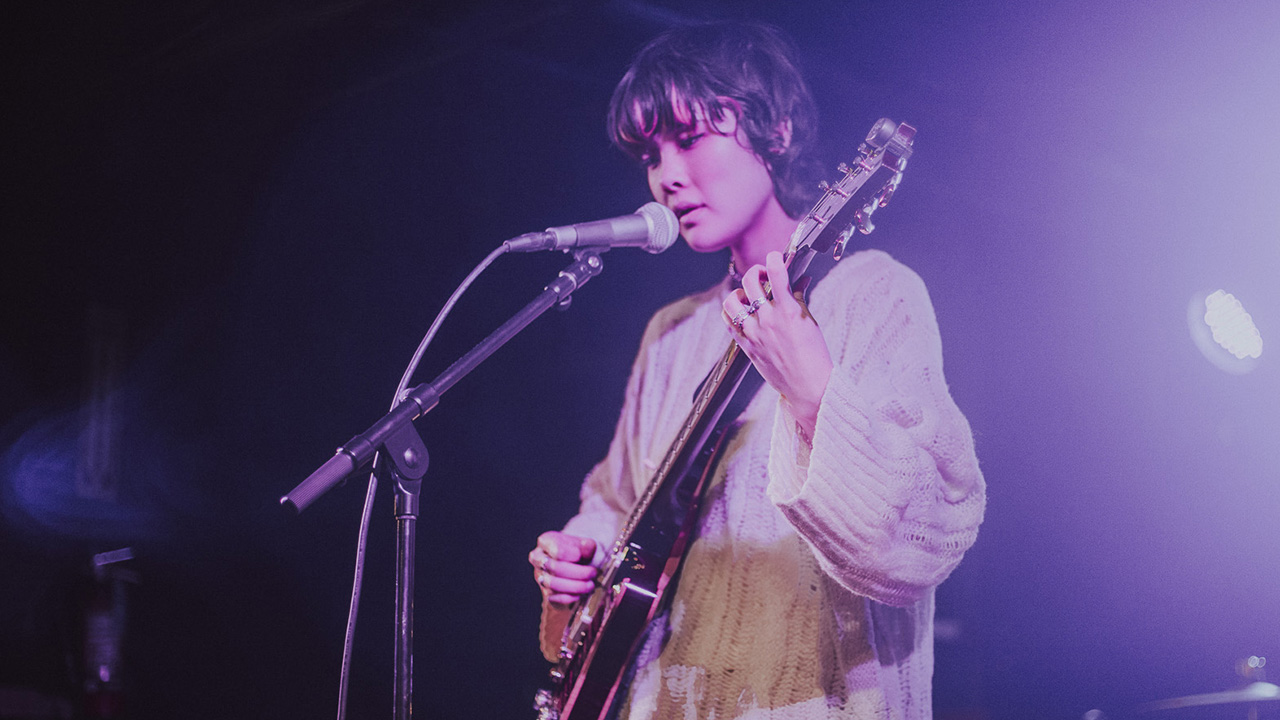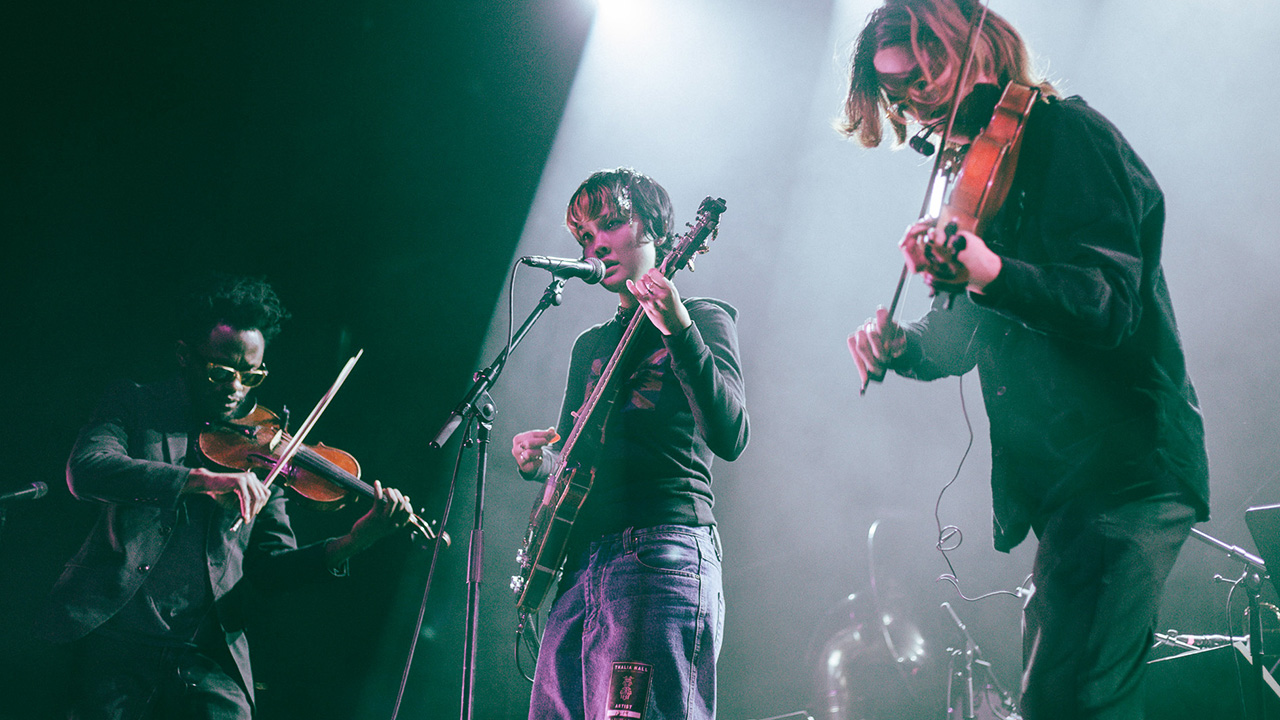
“Have you seen Back to the Future?” asks Mei Semones, back in her Brooklyn apartment after a recent sold-out Camden Assembly show. “That scene where Michael J. Fox is playing the Chuck Berry song? That made me want to play guitar.”
Two decades ago, when she was four years old, the thoughtful and intricate indie musician who’s rooted in the jazz era began playing an upright given by her grandmother in Yokosuka, Japan. But as Semones reached double digits, she became conscious of a conflict with the instrument.
“I was like, ‘I’m not enjoying this,’” she says. “Guitar felt more like an instrument I could use to play the music that I was listening to.”
Her dad – also a musician – gave her a classical nylon acoustic when she was 10.
Her parents sent her to Suzuki guitar lessons, but the fit still wasn’t right. “I was learning Mary Had A Little Lamb, which was not what I was looking to do!”
When she switched to electric, the pieces began to fall into place.
“I got a new guitar teacher and started open chords and pentatonic scales.
“They were like, ‘You should learn this Led Zeppelin song and this Beatles song.’” Presumably not Stairway To Heaven? “I did learn Stairway to Heaven!” Even the solo? “When I was probably 12 or 13!”
Noting her enthusiasm, Semones’ Dad once again stepped in.
“He bought me an Epiphone Les Paul. Whenever I pick it up, I’m like, ‘It’s so crazy I played this – it's so heavy!’”
Growing up in Michigan, she studied music theory at high school (“If I can play guitar at school, why wouldn't I?”) before studying jazz guitar at Berklee.
That’s where her appreciation for the New Orleans-sourced sound grew.
“My teacher showed me Miles Davis’ So What? solo, then I was introduced to modes and more theory.”
After releasing her EP Kabutomushi last year (with rave reviews from Red Hot Chili Peppers’ bassist Flea), Semones has now launched debut album Animaru. The record champions theoretical nous but also nods to grungier tones – and such ‘90s-era noisemakers is where she found her autonomy.
“Nirvana and the Smashing Pumpkins were the first bands that were to my taste. I loved the emotion and rawness. It was like, ‘Oh, this is real music!’”
The most important thing is that you sound like yourself
Animaru flirts with some of that ferocity in the Tubescreamer-fuelled Tora Moyo – a love letter to her cherry mahogany PRS.
“It's extremely comfortable, fitting my body and my hand really well,” she says of the instrument.
“My dad and I went to Sweetwater's Indiana headquarters. I spent eight hours playing guitar. Everything was intriguing, but I had no preconception of a brand that I wanted.

“I wasn't familiar with PRS. If anything, I was like, ‘Oh, the birds are too flashy!’ But the moment I played one I was like, ‘Whoa, I can play faster now!’ It's light and semi-hollow too.”
Semones’ intricate arrangements inform more tender numbers like the bossanova-led Dumb Feeling and recent single I Can Do What I Want, performed on a pristine Guild with delicate pinch-harmonics – a technique she says is all in the light touch and little adjustments: “Sometimes moving even half a millimeter will make it ring out much better.”
While Animaru might sound like a wild ride through genres, its creator argues that making music, like buying guitars, is all about what feels natural.
“The most important thing is that you sound like yourself – from having a thread through the album to not interfering with the natural tone of my guitar.”
In the early 1960s, Dukes of Dixieland’s Jim Hall shook up the trad band format by replacing piano with guitar in the rhythm section. More than half a century on, Mei Semones is innovating again and adding a Gen Z flair.
“I still feel weird being like, ‘I'm a jazz guitarist,’ because in the grand scheme of things, I'm at step one,” she admits. “I’ve not even scratched the surface of what it means to be a great guitarist.”
- Animaru is out now via Bayonet Records.







